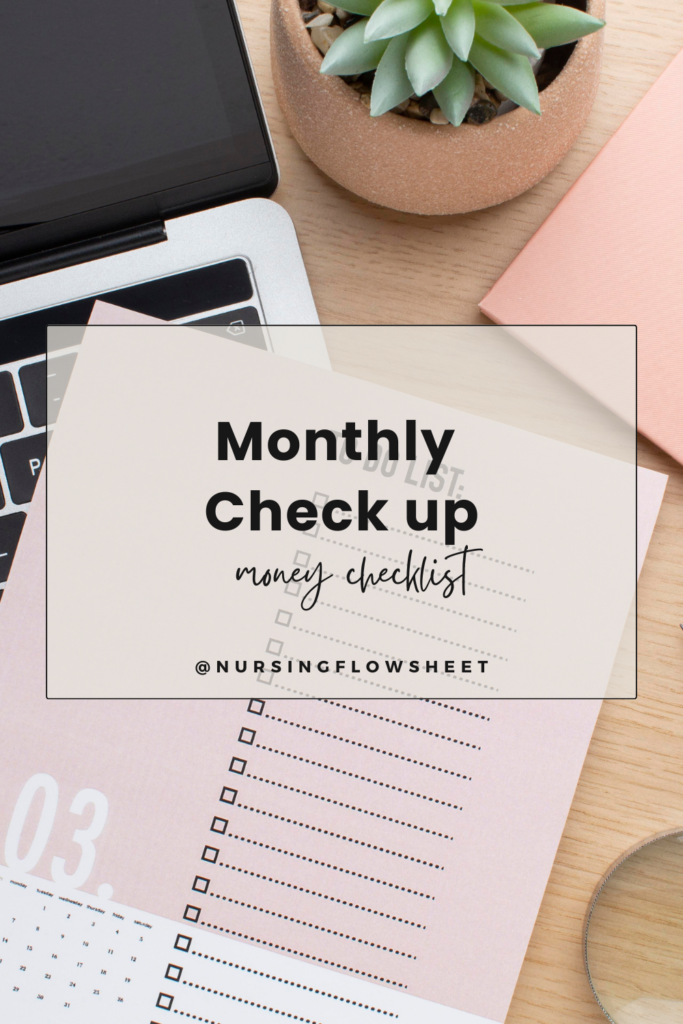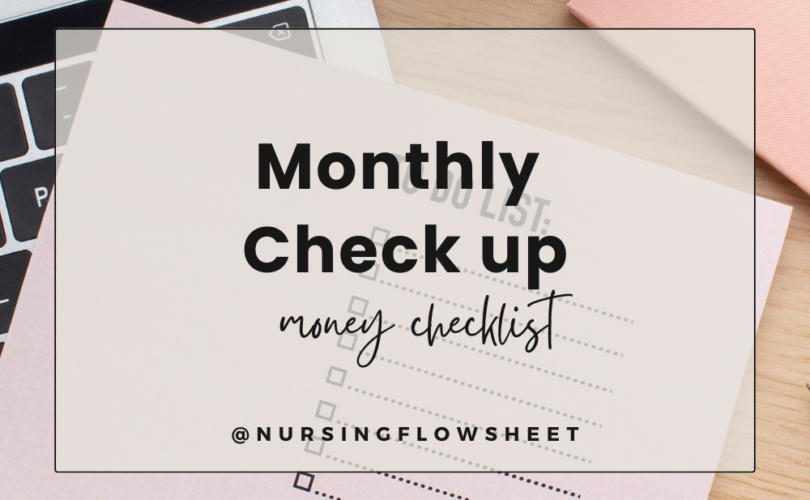Life can get hectic, and managing your finances might not always be a priority after long shifts and busy days. However, staying on top of your money doesn’t have to be overwhelming. Use this checklist to guide your monthly financial review, so you can maintain control over your budget, goals, and financial health—even with a packed schedule. Making time for a quick financial check-in each month will keep you on track and help you stay stress-free about your money.

1. Review Last Month’s Spending
- Check your statements: Take a few minutes to review your bank and credit card transactions. Make sure everything looks correct and that there are no suspicious charges.
- Categorize your expenses: Group your spending into categories such as groceries, transportation, or dining out—this helps to see where your money is going.
- Compare spending to your budget: Look at how you spent versus what you planned. Did you overspend in some areas or spend less than expected? Identify where you can adjust.
2. Update Your Budget for the Month Ahead
- Make adjustments: Based on last month’s spending, tweak your budget. Perhaps you spent more on takeout because of extra shifts—be realistic about what you’ll need for the coming month.
- Account for upcoming expenses: Whether it’s bills, birthdays, or special occasions, add these to your budget so there are no surprises.
- Set limits: Decide how much you’ll allocate to different categories like groceries, utilities, or even self-care, depending on what’s most important.
3. Assess Your Income: Nurse Money
- Review your paychecks: Confirm that all your expected income, including any overtime or bonuses, has come in. Make sure that you are getting paid for the amount of work that you do. I have gone through instances in the past where an overtime pay is not included in my pay check.
- Project next month’s income: Plan ahead if you anticipate changes, like taking on extra shifts, bonuses, or side gigs. This gives you a better idea of how much you can work with.
4. Track Your Financial Goals
- Savings goals: Whether you’re saving for an emergency fund, a vacation, or a big purchase, review your progress and make any necessary adjustments.
- Debt reduction goals: Check in on how much you’ve paid off and consider making extra payments on high-interest debts if you have the funds available.
- Investment goals: If you have retirement accounts or are investing in other areas, evaluate their performance and see if you can contribute more.
5. Manage and Review Debt
- Review your balances: Look at what you owe on loans, credit cards, or other debts.
- Check interest rates: Make sure you’re aware of any interest rate changes that could impact your repayment plan.
- Plan additional payments: If you have some extra money, try to pay down high-interest debts or reduce balances faster.
6. Evaluate Your Savings and Emergency Fund
- Check your emergency fund: Make sure you have enough saved to cover at least 3-6 months of essential expenses. If you want a place to store your emergency fund, I recommend putting it in a High Yield Savings Account. I use ALLY BANK for mine and they offer over 4% interest.
- Plan your savings for the month: Based on your current financial situation and goals, decide how much to set aside and automate your savings if you can.
7. Review and Pay Bills
- Account for all bills: Ensure all your bills are paid or scheduled, so nothing is missed.
- Set reminders: Use your phone or an app to get notifications before payments are due, so you never miss a deadline.
- Look for ways to save: See if there’s room to reduce your bills by cutting unnecessary subscriptions or renegotiating services.
8. Check Your Credit Score and Report
- Review your credit report: Look for any errors or signs of fraud that might be affecting your credit.
- Monitor your credit score: If you’re planning a major purchase, like a home or car, be sure to check where your score stands.
9. Prepare for Life Events or Seasonal Expenses
- Plan for upcoming expenses: Whether it’s holidays, vacations, or even continuing education, plan for these costs in advance.
- Account for life changes: Moving, growing your family, or even changing jobs can impact your finances, so adjust your plans accordingly.
10. Reflect on Your Financial Habits
- Identify habits to improve: Did you spend too much on coffee during night shifts or order too much takeout? Figure out areas to cut back or reallocate.
- Set one financial goal: Choose one focus area for the month—whether it’s saving more, paying down debt, or cutting back on small splurges.
Bonus Tips for Busy Nurses:
- Use budgeting apps or spreadsheets to keep things organized and easily accessible, even when you’re on the go. I personally like using Empower (Free) and Monarch Money.
- Automate savings and bill payments so you don’t have to worry about missing deadlines during busy shifts.
- Celebrate small wins! Whether you stayed under budget or reached a new savings milestone, don’t forget to acknowledge your progress.






